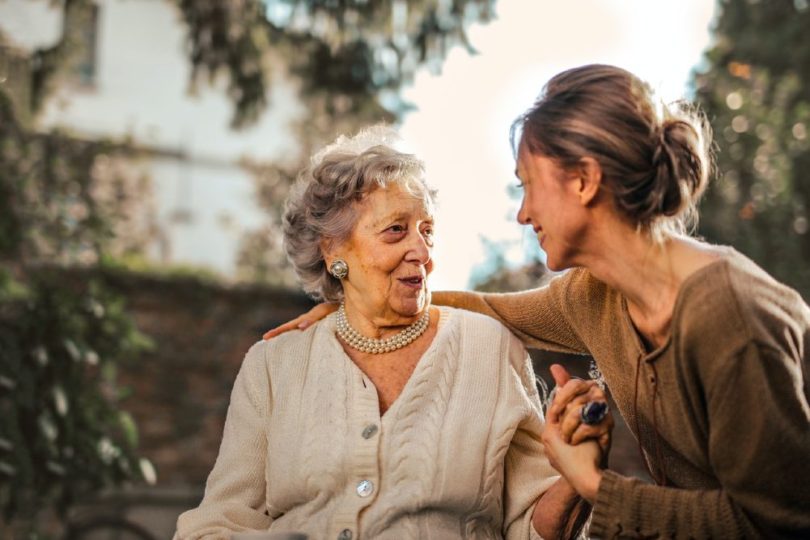The COVID-19 pandemic requires that many of us stay home and engage in fewer social interactions. This has a detrimental effect on our emotional and physical wellness.
When you take care of a loved one with dementia, daily struggles are part of the deal. Add to that a pandemic and you need to manage more than you ever imagined.
The world, right now, is packed with what-ifs. Still, if you are the caretaker of a person with dementia at home or in dementia care homes for seniors, there are some options that you can consider. Our loved ones still need assistance despite residing in senior living communities and homes.
Here are some tips to help you and your family remain safe at home through this uncertain time.
- Focus On Hygiene
As people living with Alzheimer’s and other forms of dementia may overlook washing their hands, caretakers need to be extremely cautious in helping them maintain good hygiene.
In some situations, caregivers can help them do it either by setting a deadline for proper hand washing or by reminding them to wash their hands for 20 seconds.
Repetition can help to establish behavioral changes among those with advanced dementia. Don’t underestimate the effect of setting a good example yourself.
Even if your loved one doesn’t leave the house and doesn’t see other people, the guidelines for good hygiene can still be part of prevention.
Don’t go insane, however. Simply do the most you can, given the circumstances.
- Communicate Clearly
Instructions like “wash your hands more often” can be misunderstood or misinterpreted. Be aware of how you phrase things and how you share information.
Dementia is a progressive disease that interferes with the ability to remember and learn simple daily facts, such as names, dates, and locations, over time.
Dementia can increasingly influence how an individual interacts with the world around them and with other people. Their ability to uphold logical thought patterns shifts.
If you’re looking after a person with dementia, you might discover that as the disease progresses, you have to start conversations to get the person to talk. Their capacity to interpret knowledge is slowly getting poorer and their answers may be delayed.
- Exercise Also Matters
Daily movement is essential even for someone restricted to the home. Even walking around the home can benefit the caretaker and the PWD.
Find the periods of the day that the individual is at their strongest, to gain the greatest progress in carrying out tasks. Walking is best taken in the morning or the mid-afternoon, for instance. A late afternoon stroll could be best for people who get bored later throughout the day, or who have had a particularly long or insignificant day.
- Take Care Of Yourself
Working in or caring for those with dementia may be a difficult task at times. And coronavirus can make you feel more distant than ever before.
But that you can’t do on your own. Attain — for a helping hand, a communication, or a pause. Keep in touch, by phone or on the internet, with everyone.
Talking to anyone who knows what you are going through can lend you encouragement as well as strategy.
- Keep Your Routine
Changes of habits with someone that has Alzheimer’s or other aspects of memory loss may be particularly unsettling. Carrying on like you usually do allow all of you to bring order and protection to the day.
Do your best to adhere to regular meal timetables, nap time, and other pursuits. If you need to take on new habits, be compatible and patient.
Final Thoughts:
Speak regarding the pandemic to your beloved ones in a manner they would appreciate. Validate their feelings when they share something with you.
Put it in a perspective, depending on when they’re in the phase of the illness, that they can recognize and do not over-explain whether they cannot comprehend it.
Remain always relaxed and encouraging. We have to sit indoors because this is the best option for us, but we’re going to do it together. I ‘m going to be with you and we’ll be fine. Mentioning therefore that you most presumably understand the cognitive and emotional state of your loved one best.
You know if little things put the person off and trigger immense anxiety or if they’re quiet and just friendly, they don’t get worked up about everyday life. You have to consider if there’s something worth revealing a ton of information whether it could make it tougher.
When it comes to Alzheimer’s care, experiences of Alzheimer’s fad in reverse, so an individual with mild dementia may often easily recall his or her youth. This can better understand the pandemic by building on early experiences to clarify and contextualize the situation.
WW2 also introduced rationing, scarcity, living without, and so forth. It was a time of national unity, and an intent provided. While this isn’t precisely the way it is today, counterparts do exist.
Author Bio:
Holly is a seasoned writer who loves to create content related to aging issues and everything to do with senior living. She is a frequent contributor to many top online publications including Assisted Living Near Me, where she creates content that is specific to assisted living for older adults, as well as SeniorLivingFacilities.net, where she writes about common issues affecting senior citizens and provides senior living advice.
Feature Photo by Andrea Piacquadio









